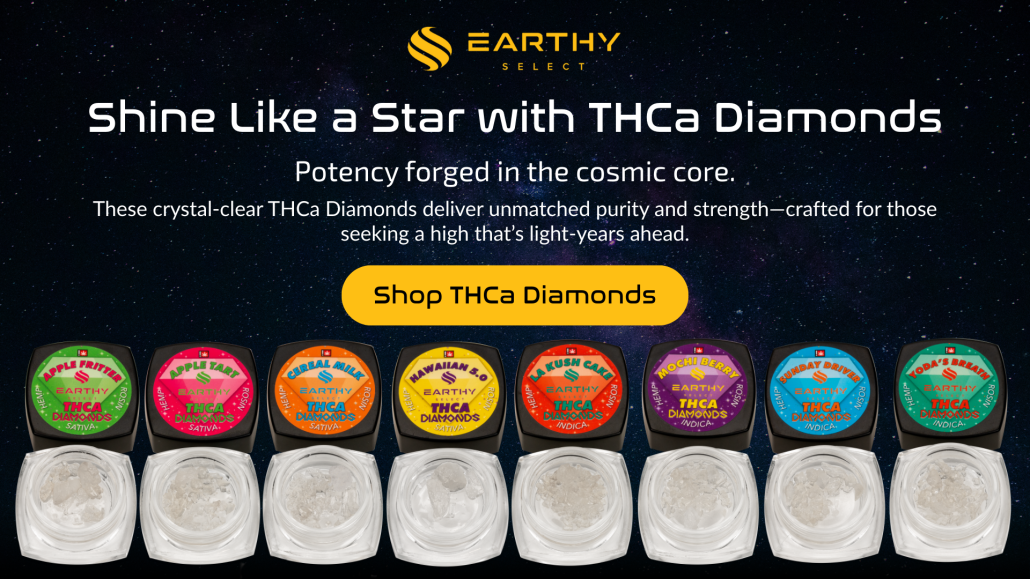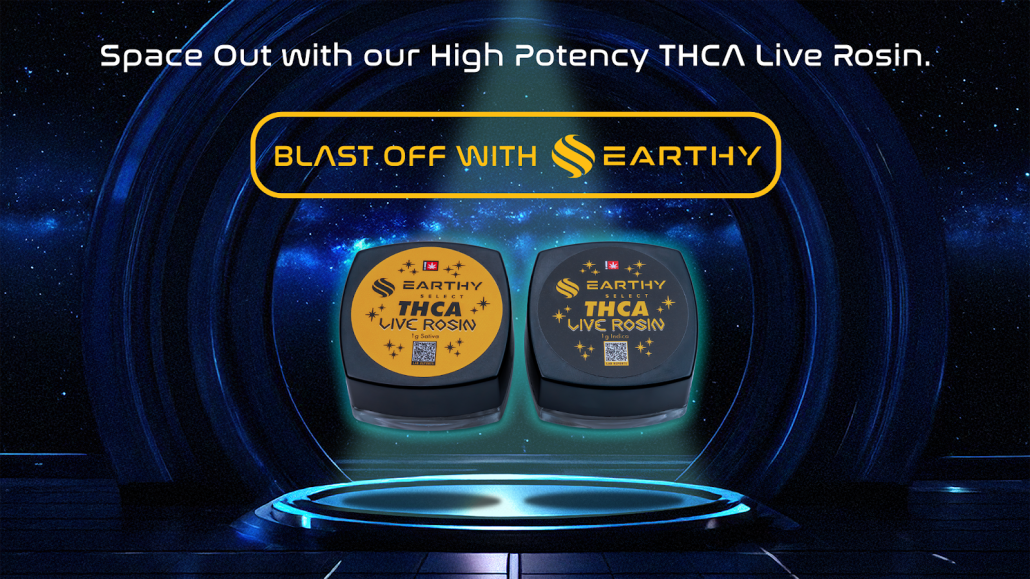Is THCa Legal in Tennessee? Current Regulations and Buying Guide
Key Takeaways:
- Legal Status: THCa is legal in Tennessee when derived from hemp and tested to contain no more than 0.3% Delta-9 THC by dry weight.
- Testing Matters: Only lab-tested products with proper documentation are protected under state and federal law.
- Law Can Change: THCa is currently legal, but future changes in DEA interpretation or state law could impact its regulation.
Tennessee is one of several states where hemp laws have changed quickly, opening access to new cannabinoids that many consumers are still learning about. One compound that has become a significant topic of discussion is THCa, a non-psychoactive cannabinoid that naturally occurs in raw hemp and turns into Delta-9 THC when heated.
At Earthy Select, we are proud to lead the conversation about hemp-derived cannabinoids and compliance. Our team combines industry expertise with scientific rigor and transparency to create products that meet the highest standards for quality and compliance. Every item we offer is lab-tested, clearly labeled, and designed for individuals who want confidence in what they consume. We do not just talk about compliance; we live by it.
In this article, we’ll break down the current legal status of THCa in Tennessee, its alignment with federal hemp law, the possession rules that apply, and where to find safe and compliant THCa products that reflect the future of legal cannabis in the state.
What Is THCa and Why Is It Getting Attention?
THCa, or tetrahydrocannabinolic acid, is the raw, non-psychoactive form of THC that’s naturally produced in the hemp and cannabis plant. It exists before any heat is applied, which means it does not cause a high in its original state. However, when heated through vaping, cooking, or combustion, THCa converts into Delta-9 THC, the psychoactive cannabinoid responsible for the classic cannabis experience.
This chemical change is called decarboxylation, and it’s key to understanding why THCa products are generating so much interest. THCa gives consumers the option to legally purchase potent hemp flower or extracts that remain compliant at the time of sale, yet still deliver strong effects after use. This has made THCa one of the most talked-about cannabinoids in states where Delta-9 THC is tightly regulated or banned.
It’s also why THCa is often sold in forms that look and feel similar to high-THC cannabis products. From a scientific standpoint, the only difference is whether the product has been heated. From a legal perspective, that difference matters a lot.
For a deeper breakdown of how THCa behaves under heat and how the law views that transformation, we cover the whole topic in our guide to the DEA’s position on THCa.
Is THCa Legal in Tennessee?
It’s critical to know whether THCa is legal in Tennessee. As of May 21, 2025, Tennessee updated its hemp law to prohibit the sale of THCa-rich products that would exceed 0.3% total THC (including THCa converted to Delta-9 THC) after decarboxylation, starting January 1, 2026. Until then, hemp-derived products remain legal if they meet the federal 2018 Farm Bill’s 0.3% Delta-9 THC limit.
THCa in its raw form is restricted in Tennessee under House Bill 1376/Senate Bill 1413 (signed May 21, 2025), which requires testing for total THC (including THCa converted to Delta-9 THC post-decarboxylation) to be below 0.3%. Effective January 1, 2026 (with enforcement delayed to July 1, 2026), most THCa flower and similar products are banned if they exceed this total THC threshold after heating. Buyers and retailers must rely on verified Certificates of Analysis (COAs) confirming compliance with the total THC limit post-decarboxylation to ensure legality.
For buyers looking to explore legal options within Tennessee, we’ve created a detailed THCa Flower in Tennessee buying guide that walks through what to look for in a compliant, high-quality product.
If you want to understand how the DEA currently interprets THCa, read our article on the DEA’s position on THCa. It helps clarify how federal views may shape future laws in Tennessee.
How Federal Law Shapes State Enforcement
Tennessee’s hemp rules still stem from the 2018 Farm Bill, which defines hemp as cannabis containing no more than 0.3 % Delta-9 THC by dry weight. That framework once left THCa in a gray zone since it converts to Delta-9 THC only when heated.
However, the DEA and now Tennessee regulators view THCa as part of “total THC,” counting its potential conversion. A 2025 law places hemp-derived cannabinoids, including THCa, under the Tennessee Alcoholic Beverage Commission starting January 1, 2026. Products must meet a total-THC limit of 0.3 %, and unlicensed sales will be prohibited.
For a broader view of how federal policies are influencing hemp legality nationwide, see our article on THCa legality in the US.
What to Know About Possession in Tennessee
Until January 1, 2026, hemp-derived THCa products remain legal in Tennessee if they contain no more than 0.3 % total THC (including converted THCa) and come from licensed hemp sources. After that date, only products sold under the state’s new Alcoholic Beverage Commission licensing system will be lawful.
There are no formal possession limits, but items without original packaging or a valid Certificate of Analysis can be treated as illegal marijuana if they resemble high-THC cannabis or exceed the total-THC cap once tested. Keep packaging, batch COAs, and clear labeling when transporting or storing THCa products.
If you’re traveling or carrying THCa across state lines, remember that laws vary significantly from one location to another. To determine the legality of your product in various states, visit our state THCa compliance map.
What to Know About Possession in Tennessee
In Tennessee, possession of hemp-derived THCa products remains legal through the end of 2025 if they meet the state’s definition of hemp – meaning they contain no more than 0.3 % total THC (including THCa conversion) and come from a licensed hemp source. Beginning January 1, 2026, only products sold under the new Tennessee Alcoholic Beverage Commission (ABC) licensing system will be lawful.
There are still no fixed possession limits, but appearance and documentation matter. Products that resemble high-THC cannabis or lack proof of compliance can be treated as illegal marijuana if tested above the total-THC limit.
To reduce any risk, consumers should:
- Keep THCa products in their original, labeled packaging
- Have access to a Certificate of Analysis (COA) verifying total THC ≤ 0.3 %
- Store products responsibly in sealed containers when transporting or using
If you plan to travel or purchase across state lines, laws can vary significantly. For a comprehensive view of where THCa is accepted or restricted, refer to our state THCa compliance map.
How to Shop Smart for THCa in Tennessee
Buying THCa in Tennessee still requires care and verification. To stay compliant under current and upcoming rules, choose products from retailers that emphasize transparent testing, accurate labeling, and legal sourcing. Poorly labeled or untested items can cause legal issues, even if marketed as “hemp-derived.”
Here’s how to shop with confidence:
Check for third-party lab results.
A valid Certificate of Analysis (COA) should confirm the product’s total THC content (including THCa conversion) is 0.3 % or less and list full cannabinoid data. The report must be recent, batch-specific, and issued by an independent lab.
Confirm hemp sourcing
Only hemp grown under licensed agricultural programs qualifies as legal. Labels or product pages should clearly show that the source is federally compliant and meets Tennessee’s total-THC requirement.
Read the label carefully.
Reputable brands include cannabinoid profiles, serving information, and compliance statements. Missing or vague details are red flags.
Choose trusted retailers
Earthy Select provides batch-specific COAs and labeling that align with Tennessee’s compliance standards, helping customers shop confidently under evolving regulations.
THCa in Tennessee: Legal Now, but Subject to Change
THCa products remain legal in Tennessee through the end of 2025 if they are hemp derived and contain no more than 0.3 percent total THC, including converted THCa, on a dry weight basis. This follows the updated framework under Public Chapter 526 (2025), which transfers regulation of hemp derived cannabinoids to the Tennessee Alcoholic Beverage Commission (ABC) beginning January 1, 2026.
Because THCa converts into Delta-9 THC when heated, the new law treats it as part of total THC content rather than a separate compound. After January 2026, all unlicensed or non compliant THCa rich products will be prohibited.
For now, consumers can still legally purchase THCa that meets current testing and labeling standards, but the legal window is closing. Buying from transparent, lab verified retailers remains the safest way to stay compliant as regulations tighten.
Final Thoughts
THCa products are still legal in Tennessee through 2025 if they are hemp derived and contain no more than 0.3 percent total THC, including THCa conversion. Starting January 1, 2026, the Tennessee Alcoholic Beverage Commission will oversee hemp derived cannabinoid sales, and all unlicensed or non-compliant THCa products will become illegal under Public Chapter 526.
Because THCa changes into Delta-9 THC when heated, regulators now include it in total THC calculations. Federal agencies such as the DEA are also reviewing how to handle cannabinoids that can convert into Delta-9 THC, which could bring further changes.
For now, consumers can still buy and possess THCa products that meet total THC and labeling requirements. Staying compliant means choosing retailers that provide clear lab results and operate within state licensing standards.
Read also:
Frequently Asked Questions: Is THCa Legal in Tennessee?
Is THCa the same as Delta-9 THC under Tennessee law?
THCa is not technically identical to Delta-9 THC until decarboxylated, but under Tennessee law a product’s compliance is judged by a total THC standard that includes THCa conversion. So even though THCa ≠ Delta-9 chemically, the law treats it as if for regulatory purposes.
Can law enforcement in Tennessee test THCa products on the spot?
Most local enforcement agencies do not have the tools to distinguish THCa from marijuana in the field. This is why lab results and labeling are essential.
Do Tennessee dispensaries sell THCa legally?
Until December 31, 2025 hemp-derived THCa products may be sold in Tennessee if they meet current licensing and testing rules, but beginning January 1, 2026 the law will prohibit many THCa-rich products unless licensed under the new regime.
Can I fly with THCa within Tennessee or between states?
Flying (or transporting across state lines) with THCa remains legally risky because although Tennessee allows certain hemp-derived THCa products now, starting Jan 1, 2026 online or delivery sales will be prohibited, and other states may treat THCa as marijuana under total THC standards.
Does THCa affect a drug test result?
Yes. After conversion into Delta-9 THC in the body, THCa can trigger a positive result on a standard THC drug test.
Is it legal to use THCa in public places in the state of Tennessee?
Possession of compliant THCa products may be legal, but public use remains subject to local laws on smoking, vaping, and controlled substances; use in places where smoking or cannabis products are prohibited may lead to complications.
Can I buy THCa online and have it shipped to Tennessee?
Until December 31, 2025 online sales of THCa products may be legal if they meet current state rules, but starting January 1, 2026 Tennessee law will disallow direct-to-consumer shipping or online orders for hemp-derived cannabinoid products unless the retailer is licensed accordingly.
Is THCa safe to consume?
While many users report positive experiences, every person responds differently. Start with a low dose and always buy from trusted, lab-tested sources.
Can THCa be used in edibles or just flower?
THCa may appear in edibles, vapes, concentrates or flower, but regardless of format the product must comply with Tennessee’s hemp-derived cannabinoid rules (including total THC threshold).
Medical Disclaimer / Legal Disclaimer – Information is provided for educational purposes only. It does not, and is not intended to, constitute legal advice or medical advice. We strive to be accurate and up-to-date, but the legality of cannabinoids and the science of cannabis are continually evolving. The author is neither a legal professional nor a medical expert. Before buying or using any products, you should consult with your local authorities and medical providers.
Sources:
- Seo, C., Jeong, M., Lee, S., Eun Jae Kim, Rho, S., Cho, M., Yong Sup Lee, & Hong, J. (2022). Thermal decarboxylation of acidic cannabinoids in Cannabis species: identification of transformed cannabinoids by UHPLC-Q/TOF–MS. Journal of Analytical Science and Technology, 13(1). https://doi.org/10.1186/s40543-022-00351-4
- Urvashi, Han, J.-H., Hong, M., Kwon, T.-H., Druelinger, M., Park, S.-H., Kinney, C. A., & Olejar, K. J. (2024). Thermo-chemical conversion kinetics of cannabinoid acids in hemp (Cannabis sativa L.) using pressurized liquid extraction. Journal of Cannabis Research, 6(1).https://doi.org/10.1186/s42238-024-00243-x
- Moreno, T., Dyer, P., & Tallon, S. (2020). Cannabinoid Decarboxylation: A Comparative Kinetic Study. Industrial & Engineering Chemistry Research, 59(46), 20307–20315. https://doi.org/10.1021/acs.iecr.0c03791
- Citti, C., Pacchetti, B., Vandelli, M. A., Forni, F., & Cannazza, G. (2018). Analysis of cannabinoids in commercial hemp seed oil and decarboxylation kinetics studies of cannabidiolic acid (CBDA). Journal of Pharmaceutical and Biomedical Analysis, 149, 532–540. https://doi.org/10.1016/j.jpba.2017.11.044





